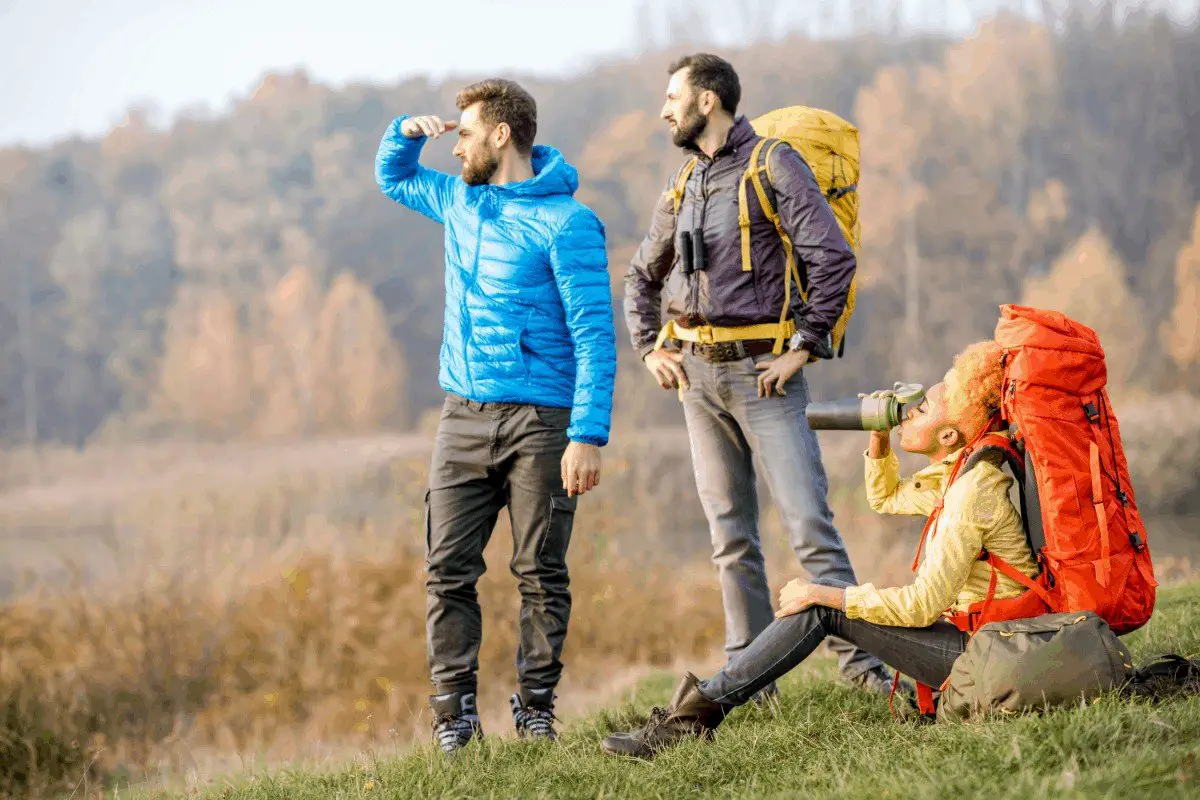Last Updated on June 30, 2022 by Ecorf
ater is one necessity that a hiker cannot afford to miss out when packing his gears. Proper hydration is as important as a balanced diet, and going about it in the right way is one of the best things you can do to stay hydrated and fueled throughout your journey.
Water is one of the things you would spot in the backpack of every hiker. So, you may be wondering about how much water you would need per day as long as the hiking lasts. This guide will help you in making an informed decision.
Table of Contents
What is Backpacking, and Why Does Every Hiker Need It?
Backpacking is an outdoor recreation that demands the carrying of one’s gears, especially when hiking for more than one day. It can also be a low-cost and independent journey, where the hiker gets to explore many places.
Worthy of note is that the backpack contains many life essentials, including water, which the hiker would need to survive the tediousness of the extended journey.
How Much Water Do You Need?
Hikers are often at a crossroads when it comes to determining the quantity of water needed for the hiking. It can be a confusing situation because you would need to bring enough water to stay hydrated throughout the trip, just as you wouldn’t want to be weighed down by the weight of carrying too much water.
No matter the difficulties you’ve faced in the past, in that regard, you can be confident that the ideas below on how much water per day backpacking would help you in calculating how much water that you would need for the trip.
-
How Long is the Hike?
The first consideration is on the distance you have to cover, which is also equal to the time you would need for the journey. Ideally, hikers are either going for a short half-day hike or a longer multi-day hike.
Note that it can be tricky when you haven’t been on a hike before. So, you may want to consult the trail guides to have an idea of the minutes or hours you would spend on the road. Besides, your abilities to scale through and the difficulties of the trails are other factors that would help in determining the length of the hike.
On the other hand, the duration of the hike can be calculated using the short half-day and the longer multi-day hike. The short variation can be anywhere between 3 to 4 kilometers. Such a distance demands little water intake. If, on the other hand, you prefer to go for the longer multi-day hike that can take up to 50 kilometers in a day, then you can be sure that the water intake would increase.
A good rule of thumb is to calculate the total distance of the hike. Once you’ve figured that out, then you would proceed to divide the length by your pace per hour.
-
Determine the Weather Condition
There’s no denying that the weather condition at any given time has a role to play in determining the amount of water you can take in a day when hiking. For instance, a hot weather condition can cause you to drink more cups of water in an hour than you would in a cold-weather condition.
-
How Often Do You Drink
One fact that many hikers haven’t fully realized is that their consumption of water also influences the quantity they need to take for their next trip. It means that if you’re the type that drinks a lot of water, then you would need extra water to keep you hydrated throughout the phase of the trip.
-
Calculate Water in Cups
Hopefully, your jar of water has a cup. Now, you can easily factor in how much water per day backpacking by calculating or measuring your water intake in cups. The idea here is that adults can take about 1/2 liter of water (2 cups) every hour of hiking. Children can take a cup within the same period.
So, assuming you hike for about five (5) hours, then the quantity of water you would need is 2.3 liters, which is equal to 10 cups. While this may be an overview of the potential amount, you can always use it to arrive at an informed decision.
-
Check If There’s Any Reliable Water Source
Either there may be moments when you would be running short of water, or you don’t have more drops in your bottle. In such a situation, it may be likened to walking in a desert without water. Therefore, checking if there’s a water source within the vicinity could be an excellent way to cut down on the quantity of water you bring along. It can also help you in trying times when you run short of water.
One problem many hikers have is the refilling of their bottles and water cans directly from the stream. Instead of doing that, the best thing to do in such an instance is to use a water filter to get rid of unwanted parasites.
Above all, always calculate the distance from the starting point of the hike to the refill point or water source. It’s essential because it helps you in making an accurate judgment on how much water you would need before getting to the water source.
Pro Tips to Determine the Amount of Water
You would need all the help you can get to minimize your use of water. Here are some of the things you can do to reduce the water you carry for the trip:
- If there’s any water source, always ensure that you fill your water can before continuing with the journey because you can still run short of water without notice
- Drink enough water before you set out. That way, you would have less cravings to sip from the water can
- Sip water instead of gulping it down at once
- Drink enough water anytime you get to a water source. It would help in saving the one you carried for the trip
- Don’t drink less water. Anytime you begin to feel dizzy or have a slight headache, that is a clue that you need to drink more water to stay hydrated
Carry Enough Water Per Day Backpacking
You don’t have to join the hundreds of hikers around the world that get stuck when they’re not able to meet up with their body’s demand for water. So, to avoid such a dilemma, you may want to use the tips above to take enough water with you on the next hiking trip.




